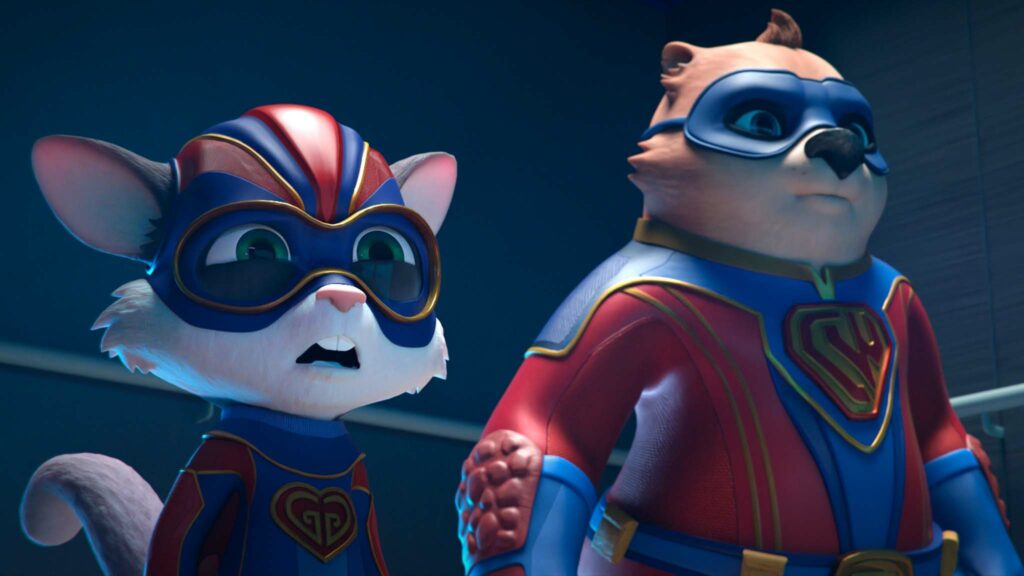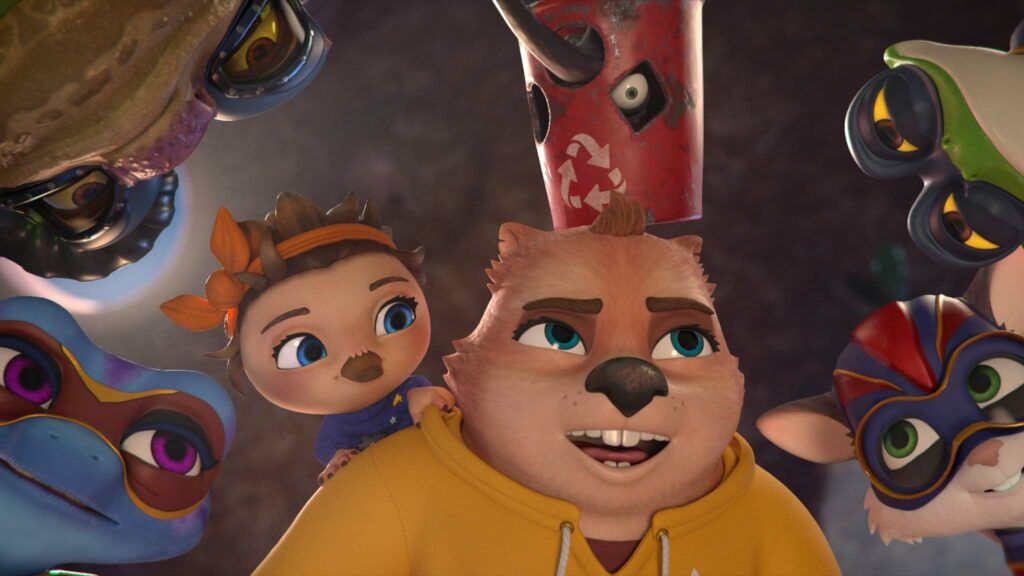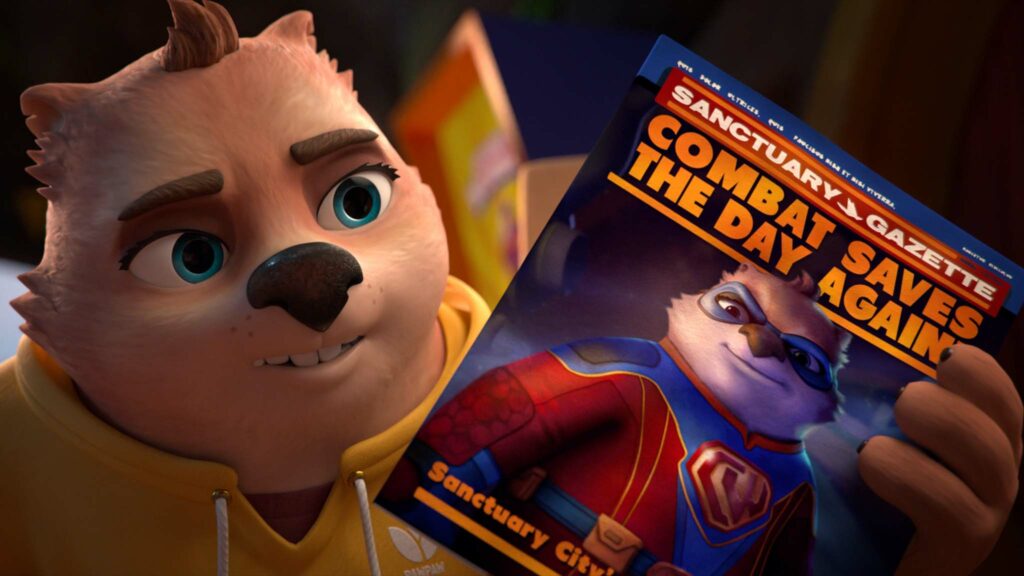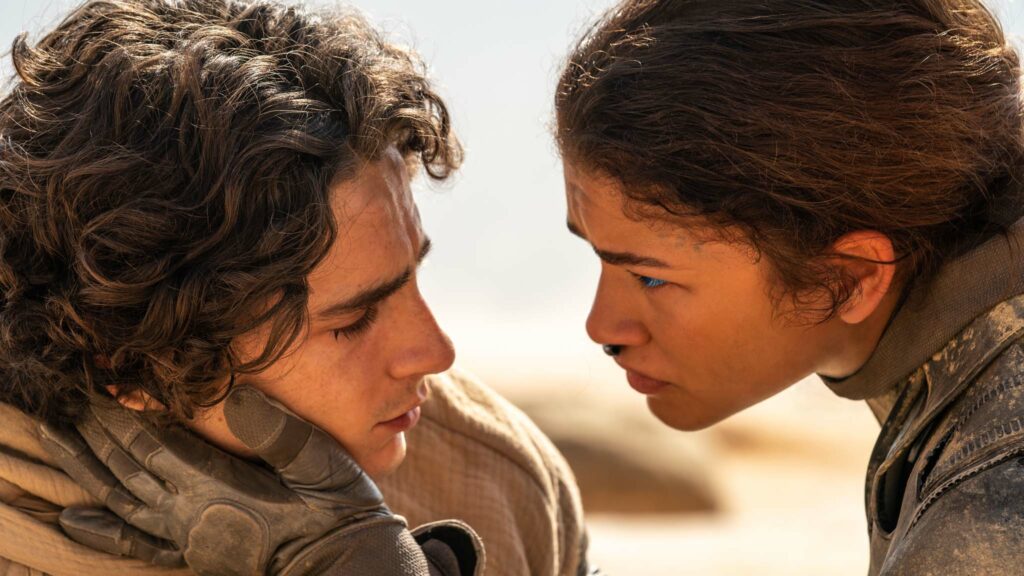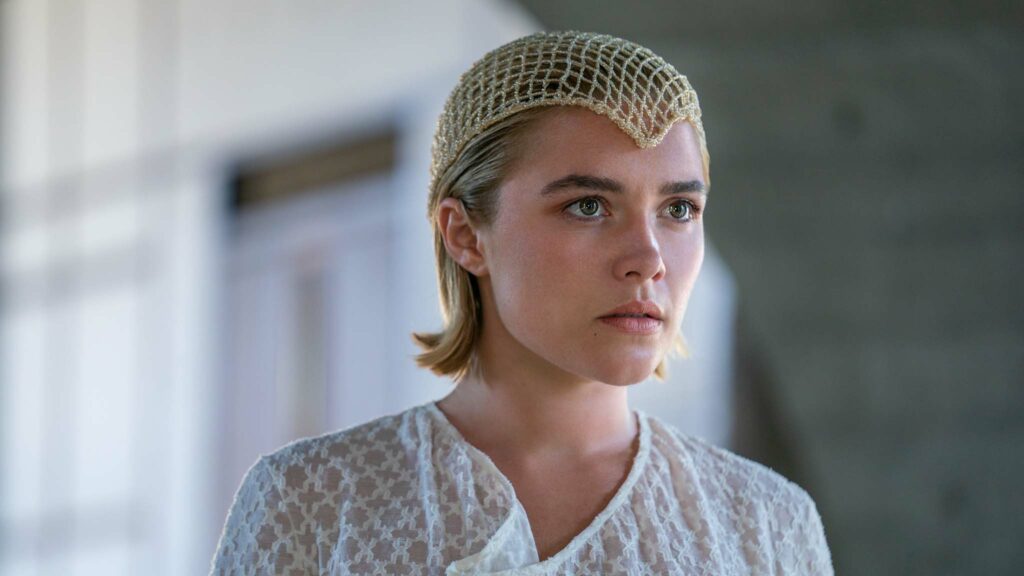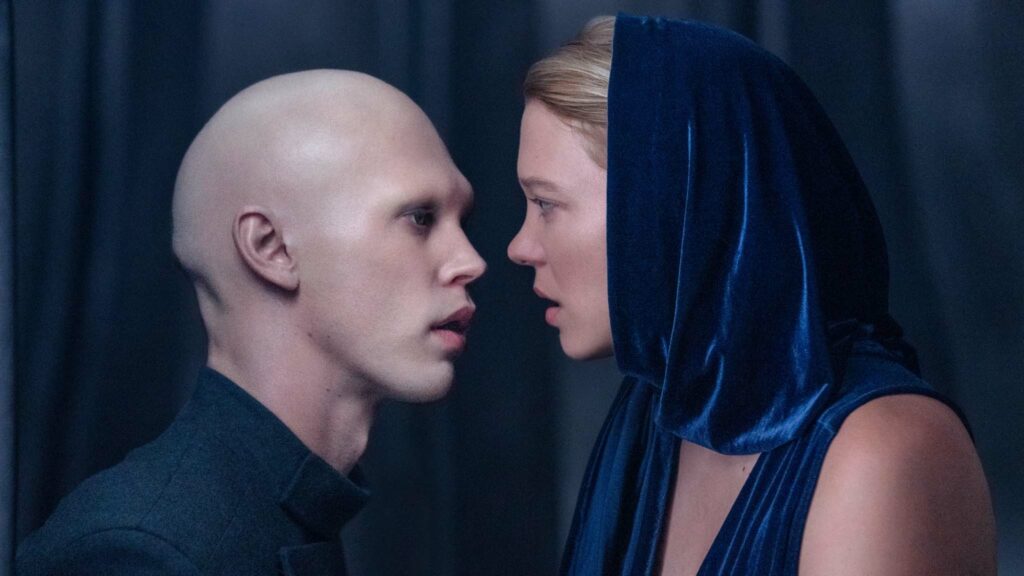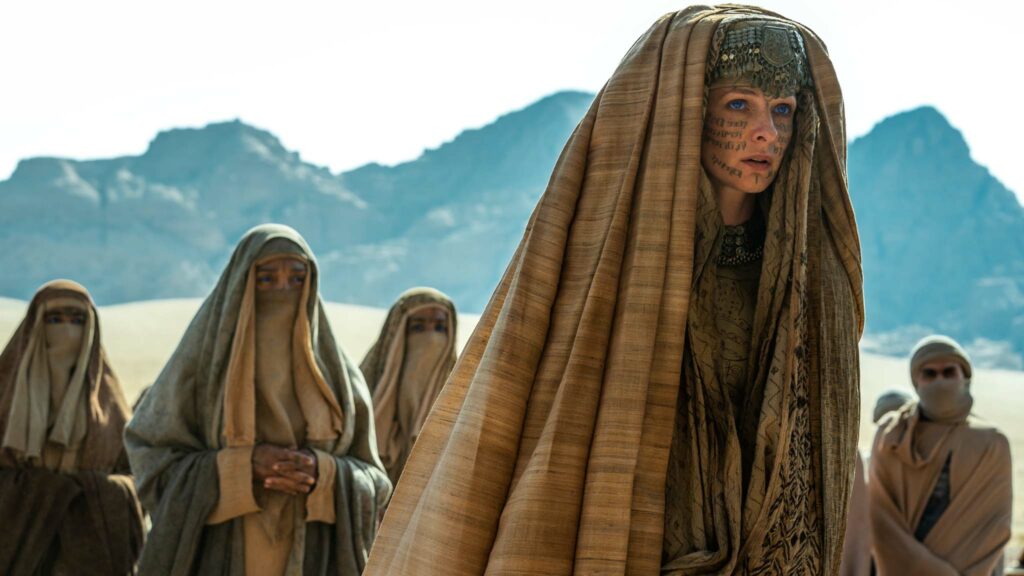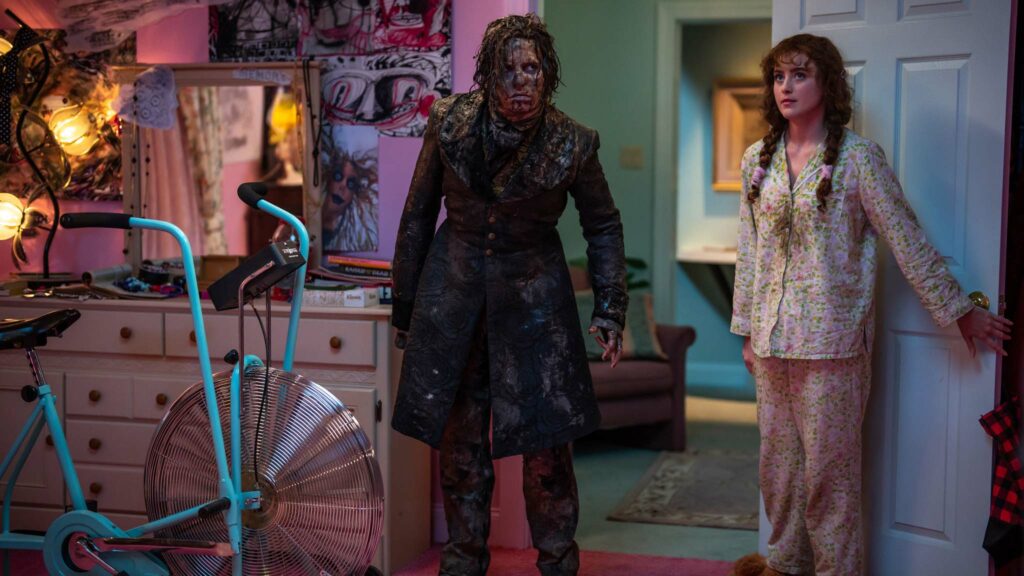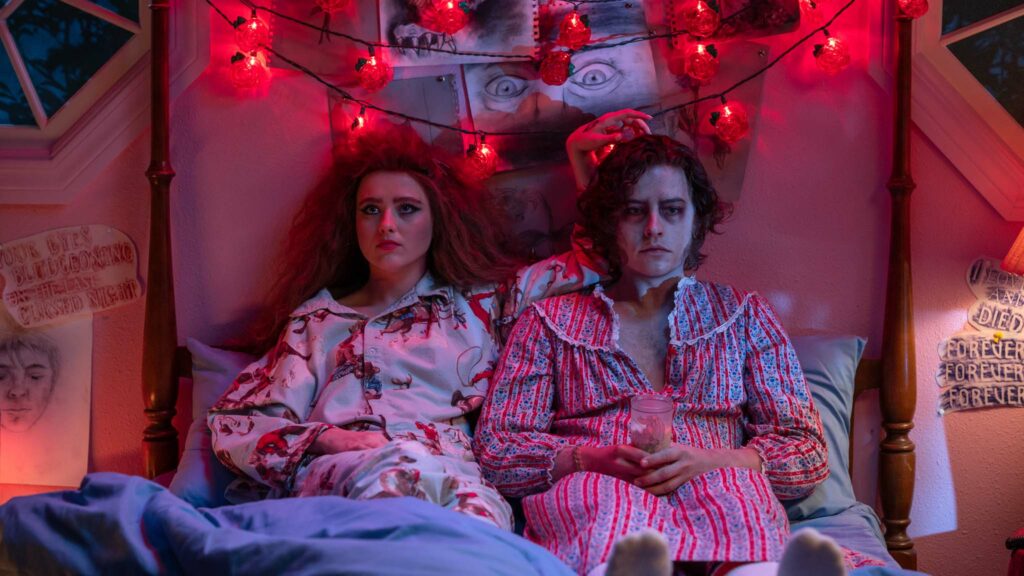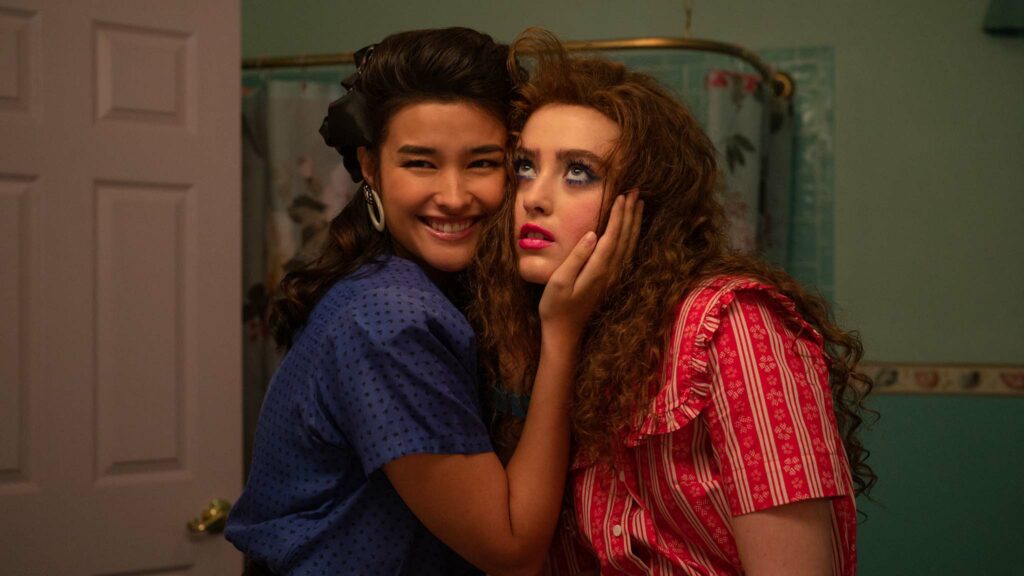Animation
Combat Wombat: Double Trouble (U)
Review: In October 2020, director Ricard Cusso’s computer-animated comedy Combat Wombat romped onto home formats in the UK and Ireland. The briskly paced adventure introduced viewers to lovable wombat Maggie Diggins (voiced by Deborah Mailman), who creates a crime-fighting alter ego in the aftermath of her husband’s death. The grief-stricken marsupial befriends sugar glider Sweetie (Ed Oxenbould) and the duo squeeze into handmade costumes to protect the good citizens of Sanctuary City as Combat Wombat and trusty sidekick Gallant Glider.
A good-natured sequel directed by Cusso and co-directed by Tania Vincent continues the story as Maggie and Sweetie fully embrace their destinies as “an unstoppable force for good” and discover that small acts of kindness and self-sacrifice add up to something far more profound. The original film drew comparisons to Zootropolis and The Incredibles and the amiable follow-up doubles down with the introduction of a sullen teenager and a snot-filled mischievous baby to the central team of anthropomorphic crime fighters under the banner of cross-generational co-operation.
Screenwriter Dominic Morris detours from expectations with a surprisingly touching ulterior motive for the villain’s dastardly deeds that ticks diversity, equity and inclusion boxes without feeling contrived. Mailman’s heartfelt vocal performance once again anchors the high-tempo hijinks and allows filmmakers to lightly address themes of grief, online privacy and miscommunication within a colourful and broadly comedic framework.
Six months into their roaringly successful tenure as Sanctuary City’s resident superheroes, Maggie (Mailman) and Sweetie (Oxenbould) launch the Hero On Demand app, which allows citizens to engage their services “anytime, anywhere, for any reason”. Feathered and furry denizens take the dynamic duo at their word and Combat Wombat and sidekick Gallant Glider are rushed off their paws unclogging drains, collecting fast food orders and retrieving frisbees from rooftops.
Thoughts of retirement are put on hold when police Chief Burbank (Dan Brumm) arrests elderly echidna Reginald (Mark Coles Smith) and his friends for orchestrating “a full-on geriatric crime spree”. Maggie scents a diabolical conspiracy and she goes undercover with Sweetie at Sanctuary City Bowls Club while babysitting Reginald’s granddaughter Matilda (Lorenzo Shakhovskoy) and supervising the community service of teenage outcast Skylar Bloodface (Elizabeth Cullen). The mismatched team follows a breadcrumb trail of clues to the revolving doors of Chameleonline run by technology genius Lenny Glick (David Wenham).
Combat Wombat: Double Trouble starts strongly with a rip-roaring distillation of events since the first film, peppered with crisp one-liners. Pace slackens with the introduction of Lenny Glick’s glitchy metaverse, Sanctuary+, necessitating infrequent narrative rebounds between his digital utopia and the real world. The majority of giggles are shoe-horned into the opening half but Cusso and Vincent’s walk on the wild side doesn’t outstay its welcome with a running time comfortably under 90 minutes.
Find Combat Wombat: Double Trouble in the cinemas
Action
Dune: Part Two (12A)
Review: Bigger is not necessarily better when it comes to the spectacular second chapter of French Canadian director Denis Villeneuve’s adaptation of Frank Herbert’s supposedly ‘unfilmable’ 1965 novel. More bombastic and visually arresting than its predecessor, Dune: Part Two demands a gargantuan screen – preferably IMAX – with a sound system capable of conveying every bone-shaking roar of composer Hans Zimmer’s epic orchestral score. Villeneuve’s brio energises thunderous set pieces including bloodthirsty skirmishes in the desert between Fremen and heavily-armed enemies and the long-awaited moment Timothee Chalamet’s vengeful son must prove his worth by surfing on the back of a hulking sandworm.
Impressive visual effects marry seamlessly with practical filmmaking, elevated by no-expense-spared production design, costumes and grotesque make-up effects to realise the bloated and shaven-headed House Harkonnen. If audience’s appetites were fed solely by dazzling the eyes and ears, Villeneuve’s sensory banquet would flirt with the oft-used superlative of masterpiece. However, a script co-written by the director and Jon Spaihts isn’t equally bountiful with narrative progression and character development. It is ironic that a film which constantly berates protagonists for shedding tears and squandering the most precious resource on Arrakis should tread water for periods of its indulgent 167-minute running time. The romance between Chalamet and Zendaya simmers to a final shot that winks knowingly to the proposed conclusion of a trilogy.
Paul Atreides (Chalamet) and his mother Lady Jessica (Rebecca Ferguson) continue to hide from Baron Vladimir Harkonnen (Stellan Skarsgard) and his murderous horde in the deserts of Arrakis. They are sheltered by Stilgar (Javier Bardem) and members of the superstitious Fremen whose eyes glow blue from prolonged exposure to highly addictive Spice. Stilgar fervently believes that Paul is a messiah from prophecy and Lady Jessica fans flames of religious fervour to instal herself as the Fremen’s new Reverend Mother.
Her son holds firm to a different course, fighting alongside lover Chani (Zendaya) and warrior compatriot Shishakli (Souheila Yacoub) to dismantle the Spice-harvesting operation spearheaded by Glossu Rabban Harkonnen (Dave Bautista). Meanwhile, scheming Reverend Mother Mohiam (Charlotte Rampling) dispatches her ally Lady Margot Fenring (Lea Seydoux) to seduce the Baron’s anointed successor Feyd-Rautha Harkonnen (Austin Butler).
Dune: Part Two is a colossal exercise in world-building, which empowers female characters and expedites the narrative through detours from Herbert’s text. Oscar nominee Butler makes an immediate impact as the sociopathic heir to the Harkonnen empire and his inevitable collision with Chalamet’s rival is suitably brutal and bloody. “I will love you as long as I breathe,” Paul repeatedly coos to Chani. I’m not so hopelessly and deliriously enamoured by Villeneuve’s sequel but I’m certainly smitten with the creativity and verve required to tame a cinematic beast of this muscular, jaw-dropping scale.
Find Dune: Part Two in the cinemas
Comedy
Lisa Frankenstein (15)
Review: During the 1980s, teenage misfits found their groove in seminal films like The Breakfast Club, The Goonies, Weird Science and Heathers. Diablo Cody, Oscar-winning screenwriter of Juno, nods affectionately to this era of adolescent underdogs in a bloodthirsty horror comedy set in 1989, which marks the feature directorial debut of Zelda Williams, daughter of master improviser Robin Williams. Gorgeous opening credits, stylised as a monochrome shadow puppet show, succinctly recount the untimely demise of a nameless Victorian-era pianist (Cole Sprouse), whose reanimated form – courtesy of a lightning strike – is a pungent and unlikely romantic suitor in Williams’s tonally disjointed picture.
The disorienting mish-mash of genres – slasher, coming-of-age comedy, Gothic horror, romance, ghoulish crime caper – is loosely stitched together, rather like the zombified paramour and his “acquired” fresh body parts. Cody’s script trades in darkly humorously one-liners (“You don’t have to worry about anything because your mum has already been murdered”) and the outlandish bloodletting elicits some of the biggest laughs. Sprouse exercises his physical comedy muscles as the monstrous suitor, who looks strikingly similar to Johnny Depp’s Sweeney Todd when wielding an axe, while co-star Kathryn Newton channels Desperately Seeking Susan-era Madonna for her goth-lite attire. A palpable absence of screen chemistry between the pair leaves the film with one severed foot perpetually in the grave.
Socially awkward teenager Lisa Swallows (Newton) slowly emerges from traumatic mutism after witnessing the death of her mother (Jennifer Pierce Mathus) by the blade of a masked maniac. Six months after this devastating loss, her father Dale (Joe Chrest) marries a cruel, self-obsessed nurse named Janet (Carla Gugino), who already has a perky cheerleader daughter named Taffy (Liza Soberano) from a previous relationship. Consumed by morbid thoughts, Lisa visits her favourite headstone in the local cemetery and whispers her desire to join the dead: “I wish I could be with you”.
That night, a bolt of green lightning strikes the grave and reanimates a Victorian man (Sprouse), whose zombified form develops a deep romantic attachment to Lisa. The shuffling stranger intimates he can be made physically whole again with freshly harvested human body parts and electrical discharges from Taffy’s short-circuiting horizontal tanning bed. Utilising rudimentary sewing skills picked up at her part-time job, Lisa wreaks revenge on her tormentors and stitches their severed appendages onto her grateful undead paramour.
Lisa Frankenstein is supposedly brought to life by a miraculous bolt from the heavens but Williams’s picture feels oddly lifeless for extended periods, hampered by inconsistent pacing and tone. A clear emotional through-line proves elusive between appealingly macabre vignettes including a bedroom scene with an unexpected climax. “I just don’t think anyone should be forgotten,” observes Lisa, referring to the dearly departed. Sadly, the film that takes her name might be.
Find Lisa Frankenstein in the cinemas


